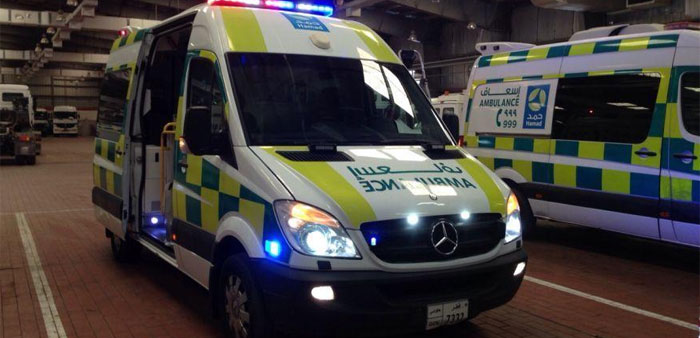Doha
Qatar is taking steps to further enhance the ability of the country's emergency services to respond to crises, local Arabic daily Arrayah has reported, quoting a senior official.
These include a new multi-storey building that will be able to house more operators and modern equipment that would help provide better services, the daily said.
Lieutenant-Colonel Khalid Saleh al-Ansari, head of the emergency services department at the Ministry of Interior, said a project has been launched to build a new headquarters for the department.
The new five-storey building will accommodate 80 units to receive calls for help, a significant rise over the existing 30 units. Construction of the new building will take two years, the daily noted.
At present, the department has 126 operators.
However, the department is facing a major problem in the form of prank or false calls, Lieutenant-Colonel al-Ansari said adding that around 90% of the calls received by the emergency services (999) did not pertain to actual crisis situations.
He said the department usually received 4,000-6,000 calls for help a day, which may increase to around 7,000 on certain occasions.
The calls received by the department often turn out to be prank calls by children. In other cases, the problem mentioned by the caller may not be of a serious nature and can even be bizarre.
The official urged parents to educate their children on the ill-effects of making prank calls to the emergency number, saying such a practice often leads to waste of time and effort for the department's staff.
The department also receives calls with odd requests for help. For instance, a woman sought the department's help to get a mouse out of her oven, while another person called to complain about the slow service at the hotel where he was staying.
Another person called 999 after midnight, seeking the police's help in catching birds around his house, which apparently deprived him of sleep.
Explaining the reason for emergency vehicles arriving late ,Lieutenant-Colonel al-Ansari said in many cases it could be due to the difficulty in locating the address of the caller. But he said this problem has been solved to a large extent. There has been an over-50% improvement thanks to the initiative of the Ministry of Municipality and Urban Planning to put up specific address plates outside buildings throughout the country.
He advised people to mention the house and street numbers written on the blue plates while seeking emergency help as this would help provide quick assistance in a smoother and more efficient way.
The emergency services line is manned round the clock by teams speaking eight languages-Arabic, English, French, Persian, Bengali, Tagalog, Urdu and Pashto.
Regarding the emergency service (992) for the hearing impaired, he said this was progressing well and around 40% of the staff receiving such calls themselves are hearing-impaired. The department receives calls for help round the clock also through SMS, video calls and e-mails.

